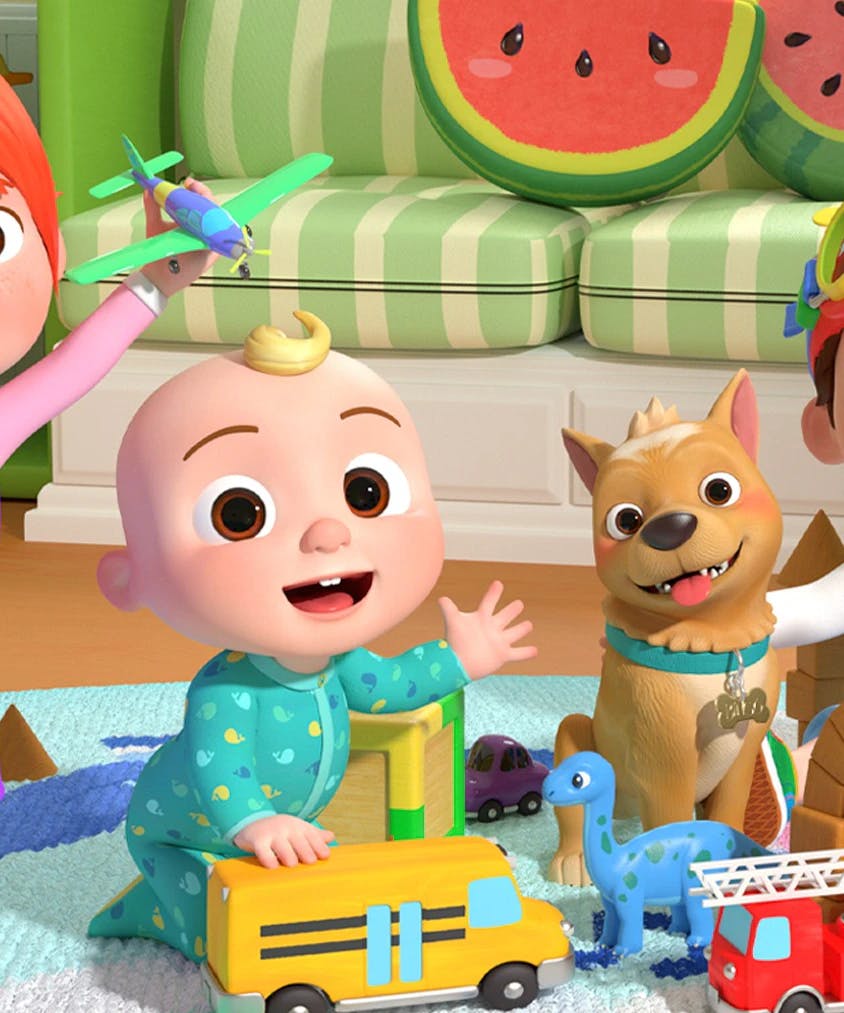Cocainemelon: Why Toddlers Can Get Addicted To Watching ‘Cocomelon’
Upon first glance, I thought “Cocomelon” looked like any other quintessential toddler’s TV show consisting of bright colors, pretty basic animation, and catchy sing-along songs that many of us grew up listening to.

It wasn’t until I stumbled across an eye-opening TikTok that exposed why Cocomelon may be the most popular and profitable kids show to ever exist: kids are literally addicted to it.
I know, I know, I probably sound like a crazy conspiracy theorist for thinking that there’s more to this innocent kid’s show than what meets the eye, and I shouldn’t take the information given to me on TikTok as fact. However, this TikTok led me down a rabbit hole, and I can’t help but want to share what I found with other moms.
So What Do the “Experts” Have To Say about Cocomelon?
Unfortunately, there’s not nearly as much research on the effects of kids’ shows as there is on the research that goes into marketing these shows to kids, but I found several child development specialists who are using their education and experience to share their findings on what media kids should avoid consuming in order to promote healthy social and emotional habits.
One child development specialist is Jerrica Sannes, who holds multiple degrees in Early Childhood Curriculum, Development, and Education, and has more than 15 years of experience working with kids. While she doesn’t claim to be a children’s media expert, she does use her professional experience to rate kids' TV shows and notify parents of the potential social and emotional effects they may have on kids.
Cocomelon is highly overstimulating and likely to result in behavioral and attention disorders.
Compared to other kid’s shows like If You Give a Mouse a Cookie, which she rated as A+, I was immediately taken aback when I was scrolling her Instagram and saw that she had given Cocomelon an F for the very reasons I had seen in that memorable TikTok: this show is highly overstimulating and is very likely to result in behavioral and attention disorders.
How Can a Kids’ Show Be Addicting?
According to Sannes, “Cocomelon is so hyper-stimulating that it acts as a drug, a stimulant. The brain receives a hit of dopamine from screen-time, and it seems that the stronger the ‘drug’ (aka the level of stimulation a show delivers), the stronger the ‘hit’.”
She then goes on to explain that the effect of a dopamine hit on a young child’s brain causes them to experience real symptoms of addiction and withdrawal where they literally crave that feeling over and over again, making it difficult to accept the normal pace of life and human interaction.
The constant changing of scenes every 2-8 seconds paired with the bright colors and catchy music causes small dopamine hits in kids’ brains constantly while viewing the show. This same format of constantly changing scenes or even shots is the very reason a platform like TikTok has become so popular and addicting over the past two years. You can scroll one minute or shorter videos that are ever changing for hours without noticing because of this similar sensation that we adults feel. “Cocomelon addiction” is even a trend on TikTok in which parents play the opening sound of the show to see how quickly their toddlers run into the room. This trend led to another much more concerning trend in which parents began posting videos of their kids having full blown meltdowns when they turned the show off.
The constantly changing scenes paired with the bright colors and catchy music causes small dopamine hits.
The gentleman featured in the original TikTok video, Sannes, and several parenting accounts I stumbled across used the term “Cocainemelon” to warn of the potential emotional and behavioral side effects it could have on an entire generation of viewers.
So If Kids Aren’t Benefiting from Watching Coco, Then Who Is?
Upon finding all of these videos and articles, it led me to ask the question: if this show is not benefiting its most vulnerable consumers, children, then who does it benefit? I then googled who owned Cocomelon and quickly discovered that the show was purchased by a company called Moonbug, run by a former Disney executive, and it was recently purchased by Netflix for 3 billion dollars. Yes, you read that correctly. Not 3 million, but 3 billion. The official Cocomelon YouTube channel even has 131 million subscribers making it the second most popular YouTube channel ever in the entire world. Wild!
Closing Thoughts
I understand that we’re living in a time of mass hysteria, and I want to be clear that this article is not meant to scare you, but to inform you. Motherhood in the 21st century is scary enough as it is. However, I hope that after reading this more parents at least know about the potential effects of this popular show and feel empowered to research and screen shows before making decisions about the media their families consume. While we live in a very chaotic time, we thankfully also live in a time of options and there are tons of alternative kids shows out there.
As a new mom, I plan on letting my son watch limited TV in his later toddler years, and I’m just beginning to research and seek out shows that are slower paced and that I believe encourage important social themes such as the importance of family, friendship, sharing, telling the truth, etc. The decision is ultimately up to you whether your kids watch Cocomelon or Sesame Street, or if they even watch any shows at all. As the old saying goes, “Mother knows best.”
Readers make our world go round. Make your voice heard in the official Evie reader survey.